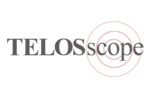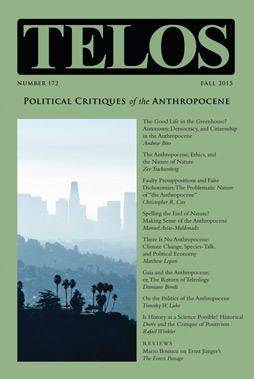By Klaus Boldt · Monday, April 12, 2021 
The following interview appeared in the Welt am Sonntag. This translation is published here with permission. Wolfgang Reitzle is one of Germany’s leading business executives. Translated by Russell A. Berman, with comments here.
Welt am Sonntag: Mr. Reitzle, the corona crisis robbed many Germans of their illusions about this republic. They don’t recognize their country anymore. They used to think of it as progressive, organized, digitalized, and well led. Was that image of modern Germany just a fantasy?
Wolfgang Reitzle: There have been plenty of signs of a discrepancy in Germany between appearance and reality: despite a defense budget of 47 billion euros, our guns can’t shoot, our tanks can’t roll, and our airplanes can’t fly—this doesn’t seem to bother anyone here, but other countries have taken notice. Our inability to build an airport for our capital city astonished the world.
Continue reading →
By Russell A. Berman · Monday, April 12, 2021 Wolfgang Reitzle is one of Germany’s premiere business executives, and Klaus Boldt, part of the editorial leadership of Die Welt, one of the foremost business journalists. The wide-ranging interview here points to the multiple dimensions of the problems facing Germany at the end of the Angela Merkel era. The general elections in late September are sure to lead to a new coalition government in Berlin—and a new chancellor—who will face all the problems that Reitzle diagnoses, with the possible exception of the pandemic, hopefully over by the fall, even in Europe. While the coronavirus’s economic, social, and political consequences are however sure to linger on, it figures here primarily as an example of massive government failure and the toxic mixture of bureaucracy, ideology, and incompetence that Reitzle denounces and that leads him to call Berlin “a failed state.”
Those are harsh words from a prominent leader of the German business community, especially when one recalls how in the U.S. political discussion in recent years Germany has been repeatedly held up as the better alternative to the Trump administration. Not long ago the myth of Angela Merkel as the new leader of the free world circulated through the press. That once-glowing imagery has now vanished in the face of the catastrophes of the German and the EU corona response, and the prospect of continued slow economic growth, fraying infrastructure, and insufficient support for technological innovation in the country where one would least expect it. Reitzle helps us understand why.
Continue reading →
By Timothy W. Luke · Monday, September 14, 2015 Telos 172 (Fall 2015) is now available for purchase in our store.
 Rapid climate change today is attributed to the profligate use of fossil fuels, and this consumption of hydrocarbon energy has worldwide, albeit uneven and discontinuous, cultural and economic patterns to it. Nonetheless, it is more than plausible to spin up the frameworks for a universal history of humanity based upon modern society’s increasing combustion of the planet’s biotic prehistory as fossil fuel energy. As the carbon of antediluvian plant matter is burned to light homes, run factories, and propel vehicles, the history of the present becomes materially universalized as the exhausted energy of the distant past released along with its soot, smog, and smoke. Rapid climate change today is attributed to the profligate use of fossil fuels, and this consumption of hydrocarbon energy has worldwide, albeit uneven and discontinuous, cultural and economic patterns to it. Nonetheless, it is more than plausible to spin up the frameworks for a universal history of humanity based upon modern society’s increasing combustion of the planet’s biotic prehistory as fossil fuel energy. As the carbon of antediluvian plant matter is burned to light homes, run factories, and propel vehicles, the history of the present becomes materially universalized as the exhausted energy of the distant past released along with its soot, smog, and smoke.
Thus, noxious by-products of production and consumption ironically become the crown of commodified creation at the end of history, whose ultimate historical ends, as Fukuyama reaffirms, are tied to the “endless accumulation” of wealth. Little did he know, this outcome also would entail nonstop increases in greenhouse gases and rapid climate change; but, environmentalists, historians, sociologists, and technologists are more than willing now to seize upon this curious outcome for the crisis narratives of a universal history framed by the concept of “the Anthropocene.”
Continue reading →
|
|




